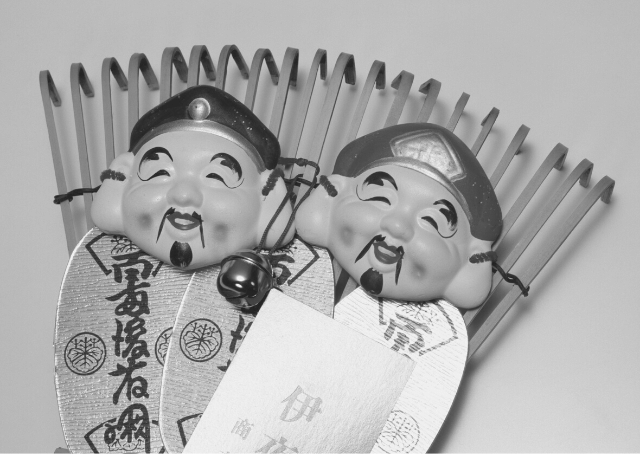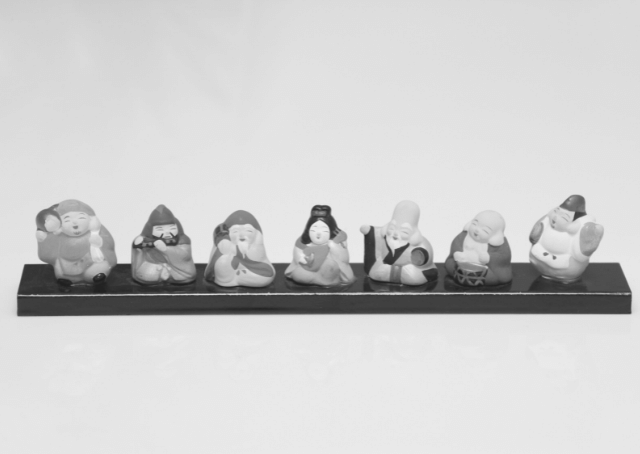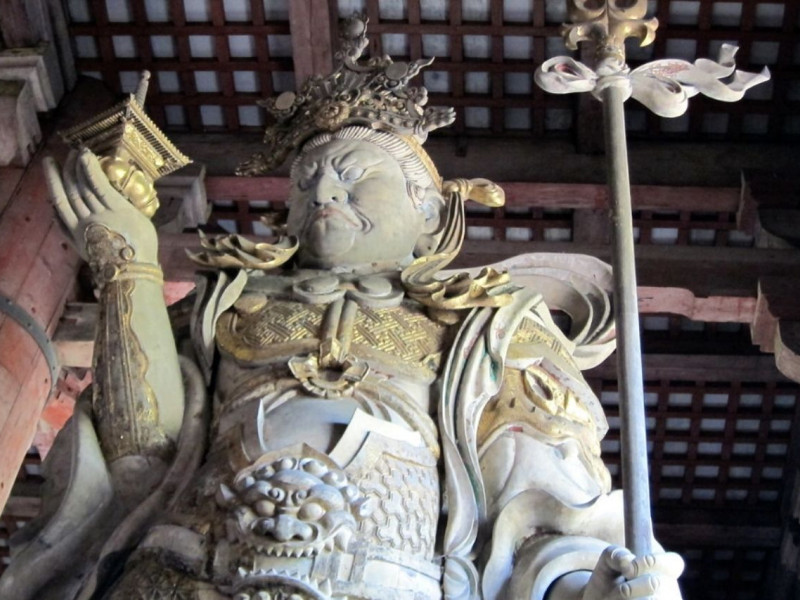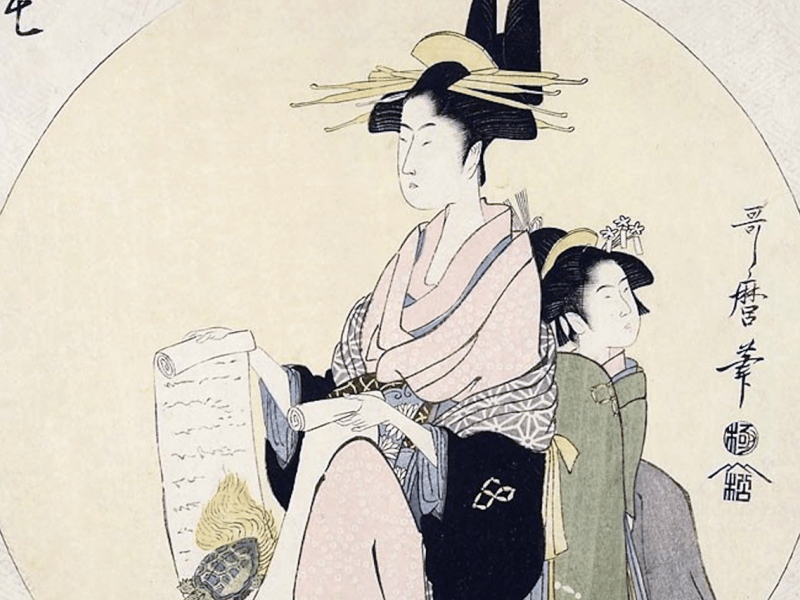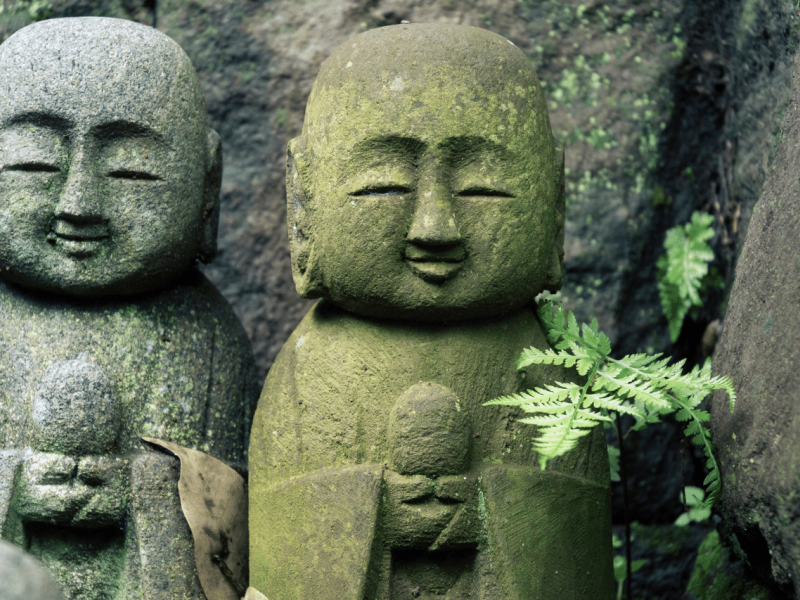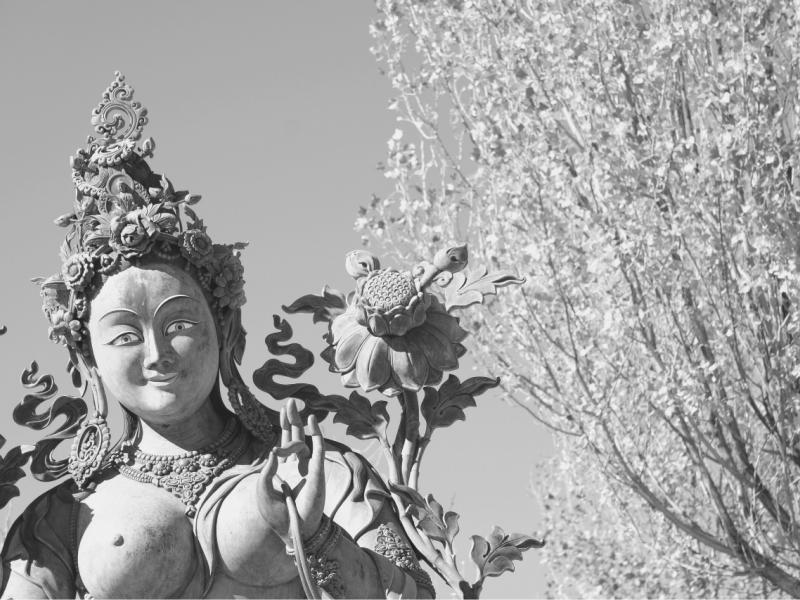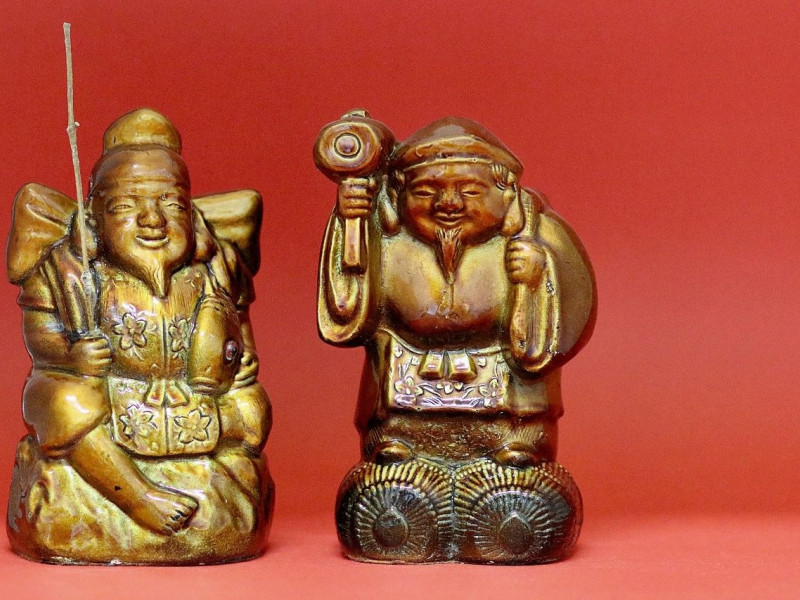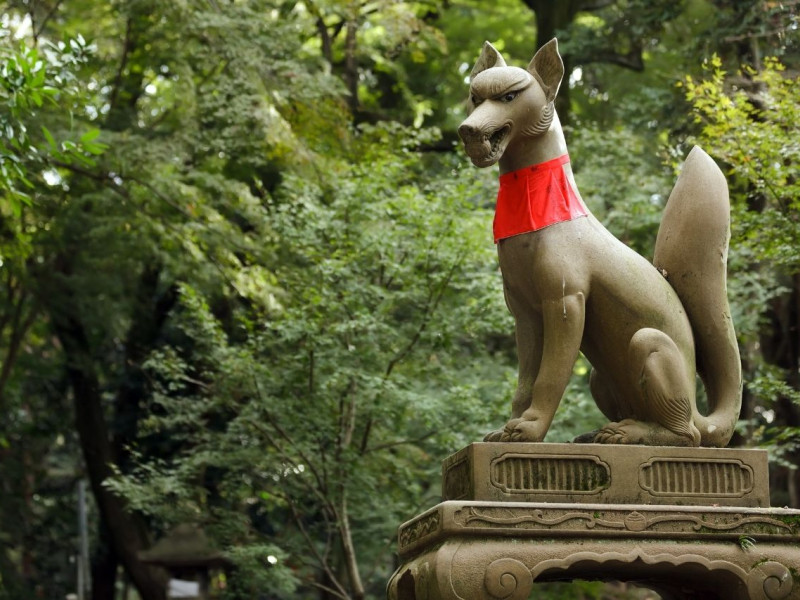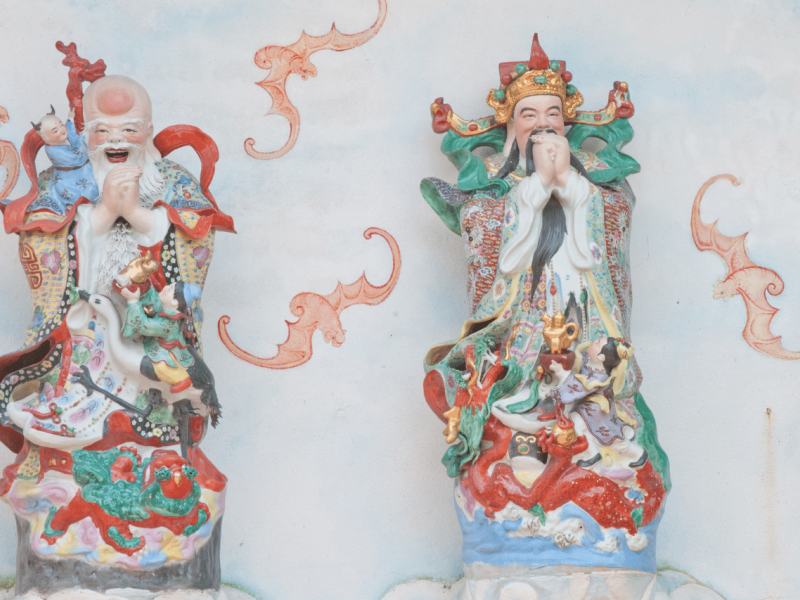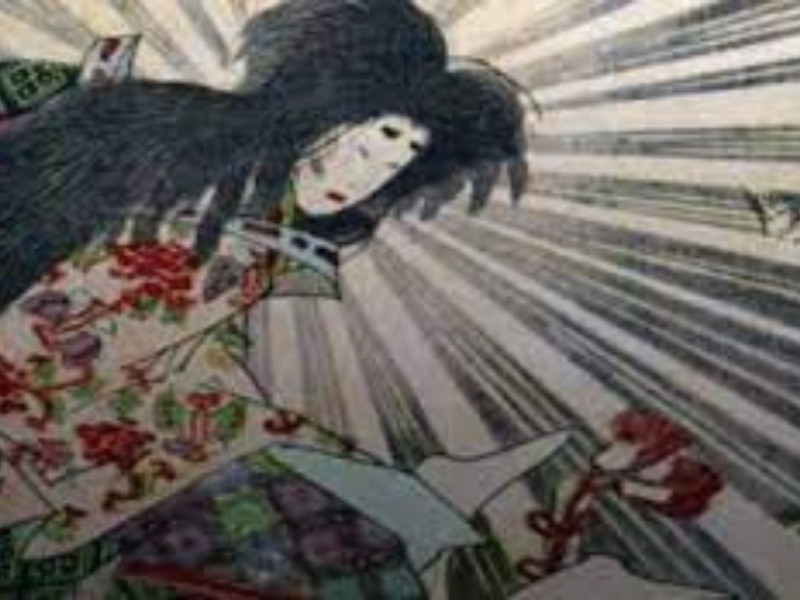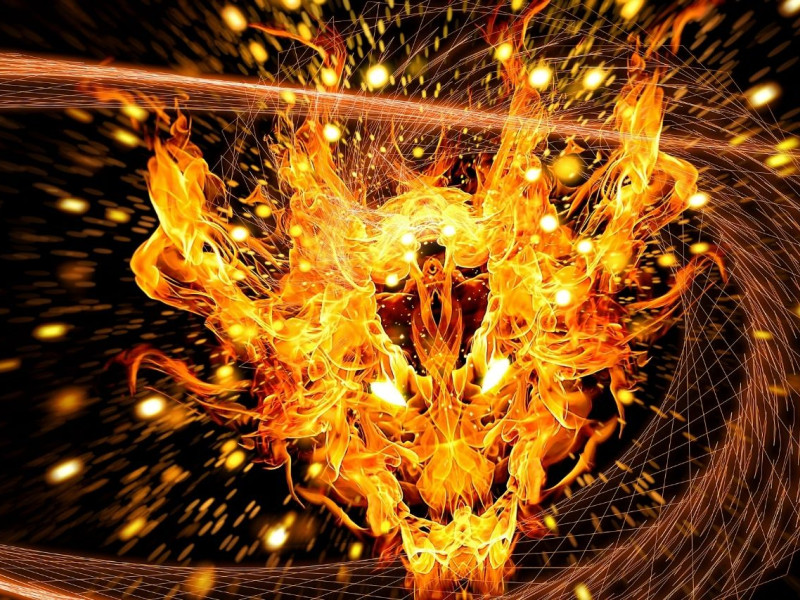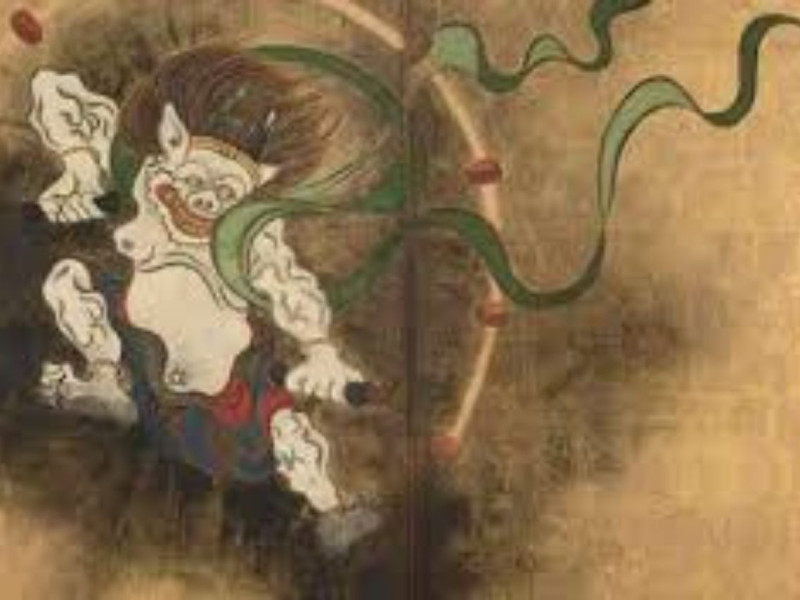Daikokuten
Daikokuten: One of the Seven Japanese Lucky Gods
Daikokuten (大黒天) is one of the Seven Lucky Gods in Japanese Mythology. He is considered to be a Japanese Buddhist god with Hindu origins, similar to Benzaiten who likewise has Hindi roots. He is believed to be an evolution of the Buddhist representation of the Hindu god Shiva.
He is one of the most interesting members of the Japanese seven lucky gods, sometimes called the Seven Gods of Fortune in Japanese mythology. He is known as the Japanese god of fortune, as well as the Japanese god of darkness. Here, the darkness part does not mean evil. This darkness or blackness simply means the absence of light.
Aside from these contrasting influences, Daikokuten is also considered the god of the household, more specifically, the kitchen. Now, you might already be getting lost about his scope of influence, but there is more as Daikokuten is also the Japanese god of fertility and bountiful harvest.
Who is Daikokuten in Japanese Mythology?
Daikokuten’s Buddhist roots are very evident in how he is depicted in literary arts and illustration. Daikokuten is often portrayed as wearing a flat black hat and holding a mallet made of gold, called the mallet of fortune. He is usually seated on bales of rice grains, surrounded by rats, which signifies bountiful food. Because of this, Daikokuten is considered an important patron for bankers, farmers, and cooks. He is also the protector of crops and harvest.
Being the god of fertility, he is likewise portrayed to carry a bifurcated Japanese radish called daikon, often called “the bride of Daikoku.” Whenever he is depicted as the god of fertility, he is often portrayed doing the fig sign and sporting an erect penis.
Despite his rather diverse scope, Daikokuten’s influence is aligned with the amplification and multiplication of what currently exists. It is about increasing value and bounty. More than that, he shows that one can prosper in different aspects of life, as well as create life itself. This characteristic makes him a highly productive and auspicious member of the Seven Lucky Gods.
Daikokuten & the Role of the Seven Lucky Gods
Daikokuten is one of the seven lucky gods of fortune who amplifies blessings, particularly in obtaining fortune and wealth. His significant influences in relation to being the god of fortune and the household, as well as being the god of fertility, revolve around a similar direction, which is the path of abundance, whether it be in riches or in heritage.
As a supportive entity, Daikokuten bestows rippling blessings in synchrony with the other members of the Seven Lucky Gods. For example, Fukurokujin is the god of longevity, and Benzaiten is the goddess of water. Indirectly, Daikokuten amplifies them as a whole. Thus, the Seven Lucky Gods are better revered holistically because their blessings resonate with each other. Daikokuten’s influence acts as leverage for the influences that the other gods have.
Even if you are not familiar with Daikokuten, he can be easily spotted when grouped with the other members of the Japanese Seven Lucky Gods. While other members are identified based on their distinct appearance, you can recognize Daikokuten easily because he is the only one who is always smiling. He is actually known to have one of the best smiles in Japanese mythology, if not the best.
Many people believe that smiling attracts fortune and boundless positive energy, which is one of Daikokuten’s highlighted features. He has spherical earlobes and is noted to have a short stature because of his short legs. He wears a flat black hat and a golden mallet that always drops goods whenever he shakes or strikes it.
Now, don’t be fooled by the fact that Daikokuten is just all smiles. He is also a brave warrior and can whack evil spirits as needed. As the protector of crops and harvest, it is his duty to protect his worshippers, such as farmers and bankers, to sustain their crops and finances against pests and losses.
Fun Fact #1: A Weird Blessing
It was mentioned earlier that Daikokuten is a god of the household, and he has a strong association with prosperity and wealth. From this influence, a custom known as fukunusubi, which means “theft of fortune,” emerged. It started with the belief that someone who steals divine figures will be assured of great fortune as long as he or she is not caught in the act of theft. Despite this rather unusual blessing, Daikokuten is not a patron of thieves.
Fun Fact #2: Feminine Form
Daikokuten is the only member of the Seven Lucky Gods with a feminized form called Daikokutennyo, which means “She of Great Blackness of the Heavens,” or Daikokunyo, which means “She of Great Blackness.” Whenever Daikokuten is feminized, her image is usually associated with Benzaiten and Kisshōten. She is also known as the Japanese counterpart of the Hindu Tridevi, which is a triad of eminent goddesses. Daikokuten is also acknowledged as a syncretic entity, although not as tightly woven as Benzaiten’s roots.
Conclusion
Daikokuten is one of the most interesting syncretic entities in Japanese mythology. His distinctly diverse scope of influence, as well as the variety of occupations who look up to him as their patron, is truly a fascinating feat.
Daikokuten, in Japanese mythology, is the only member of the Seven Lucky Gods who also has a feminine form.
His existence is an evolution of the Hindu god Shiva, and he is generally known as a syncretic entity with the Shinto god Ōkuninushi.
He is the Japanese god of wealth and prosperity, god of darkness, and god of the household.
He is the patron of most labor- and money-related professions, such as farmers, cooks, and bankers.
When illustrated with Kisshōten and Benzaiten, they represent the Japanese mythology interpretation of the Hindu Tridevi.
Daikokuten is one of the few Japanese gods known for his smile, and he is widely considered to have the best smile among them.
He is one of the few Japanese gods featured on the first series Japanese bank notes, which were designed by Edoardo Chiossone.
Daikokuten’s pleasant demeanor and the fact that he always smiles enabled him to capture a significant number of followers and worshippers. He is also one of the major gods of wealth and prosperity, which is a big deal in Japan.
Depending on what the follower is requesting from Daikokuten, the offerings include a bifurcated Japanese radish if they seek blessings related to fertility or favors if the blessing is related to wealth and bountiful harvest.
Similar to Benzaiten and Fukurokuju, Daikokuten is included in the Seven Lucky Gods pilgrimage in Japan that occurs during the first seven days of the new year. A lot of people, even those who are not too familiar with Japanese mythology, are drawn to this pilgrimage as it bestows blessings to sustain them for the new year ahead.
The most important aspect that we can learn from Daikokuten is his smile. His simple act of living in a positive light can have surprising effects on your day-to-day activities. Interestingly, the god of darkness is the one who smiles—smiling despite the absence of light.
We should remember that even our darkest days will meet the sunrise the next day. All we have to do is to smile and just embrace what life gives us, because how we perceive life is directly related to how life smiles back at us.
Fukurokuju is a very well-mannered and sometimes funny member of the Seven Lucky Gods, but Daikokuten can be labeled as the most optimistic and positive among them. His personality just exudes an auspicious aura that evokes optimism and positivity.
Another aspect worth noting is how Daikokuten’s influence as the god of the household bears a distinct significance. Notice how the household intertwines with prosperity? Aside from the fact that treasures, artifacts, and other valuable items are stored in houses, the most important thing in the household is the family that resides in it—where true prosperity begins and flows out.
Daikokuten’s scope is one of the most interesting and intriguing among the Japanese Seven Lucky Gods because despite being associated with what is usually perceived as evil or negative, which is darkness, Daikokuten’s influence managed to successfully place the darkness in a positive and even romantic light.
Finally, navigating through Daikokuten’s journey and significance also presents one thing—that prosperity and bounty in life are better experienced when shared. He is like the older member of the family who makes sure that everyone receives something, and in the end, by sharing something with everyone, the blessings multiply further and reach greater heights and deeper meaning.
